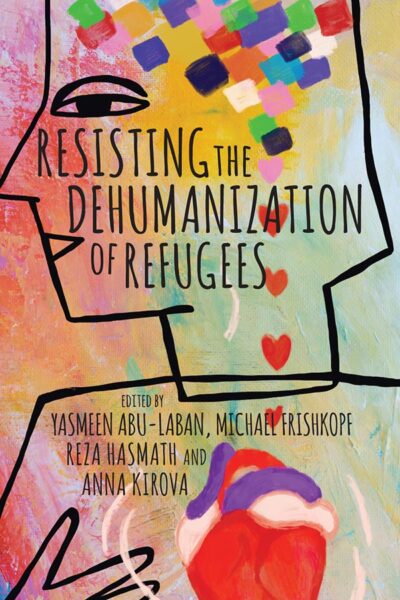Strategic Nonviolent Power The Science of Satyagraha
Mark A. Mattaini

Subjects: Peace and Conflict Studies, Sociology
Imprint: AU Press
Refugees face distinct challenges and are often subject to dehumanization by politicians, media, and the public. In this context, Resisting the Dehumanization of Refugees provides urgent insights and policy relevant perspectives to improve refugees’ social well-being and integration. Taking a transdisciplinary approach, scholars from the social sciences, arts, and humanities, alongside practitioners and refugees, explore what it means to experience dehumanization. They consider how refugees’ experiences of dehumanization inform both epistemological and practical approaches to humanizing (or re-humanizing) refugees before, during, and after resettlement. By addressing these important issues, contributors marshall rich and multidimensional responses that draw upon our shared humanity and reveal new possibilities for change.
“This is a thorough and thoughtful exploration of the figure of ‘the refugee’ and the way in which that concept can be dehumanizing, particularly when invoked by powerful actors in settler colonial societies. While acknowledging the damage dehumanization can do, this volume goes beyond that observation, combining the voices of scholars, advocates, and people who self-identify as refugees to offer a variety of reflections on the ways in which dehumanization can be resisted, including through the power of artistic expression.”
—Rebecca Hamlin, professor, Department of Political Science and Legal Studies, University of Massachusetts, Amherst
“This book offers a hard-nosed look at systems and institutions that dehumanize people—via public policy, political and media discourses, schools and universities—and it shows how resistance and change are possible, not just through political action or civic engagement, but also through the arts. The variety of topics, and the diverse sources of knowledge and lived experience that are highlighted, provide a wonderfully unique and richly textured tapestry from which to consider human dignity and forced migration.”
—Irene Bloemraad, Class of 1951 Professor of Sociology, UC Berkeley
“Resisting the Dehumanization of Refugees calls on policy makers to transform their outdated approach of managing and containing undesirable migrants. Instead, the authors urge us to recognize their humanity, voice, and myriad contributions to Canada. The chapters, many of which are written by authors with lived experience of migration, offer both tough critiques and practical solutions. Interdisciplinary, comparative and with a wide range of topics, from resisting dehumanizing through music to a critique of the unrealized potential of building anti-racist learning projects in higher education in Germany, the volume challenges us all to re-commit to building a more inclusive and humane Canada.”
—Dagmar Soennecken, School of Public Policy and Administration, York University
Taking as its geographical focus Canada in a broader international perspective, the book focuses on four major themes: the role of immigration policies and the media in the dehumanization of refugees; the role of educational institutions and programs in the (de)humanization of refugees; countering dehumanization: state apologies and new approaches; and enacting (re)humanization: refugee agency and the arts. […] I strongly recommend this book.”
Jatinder Mann, JACANZS
This work is licensed under a Creative Commons License (CC BY-NC-ND 4.0). It may be reproduced for non-commercial purposes, provided that the original author is credited.